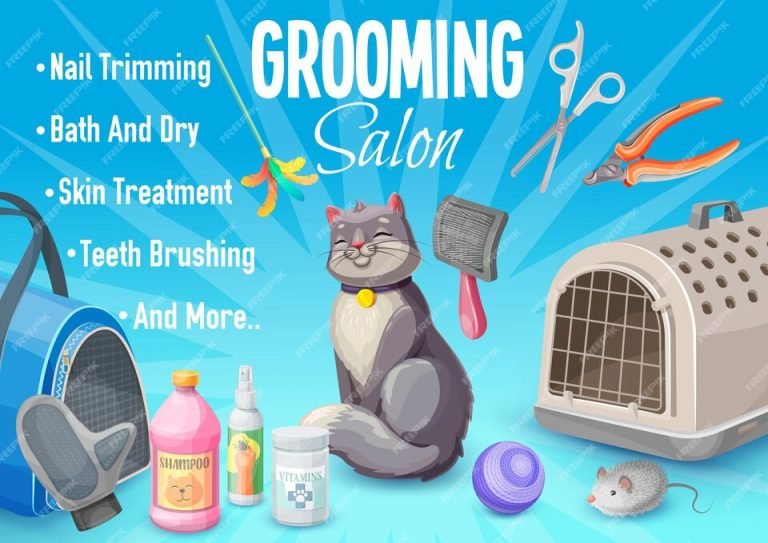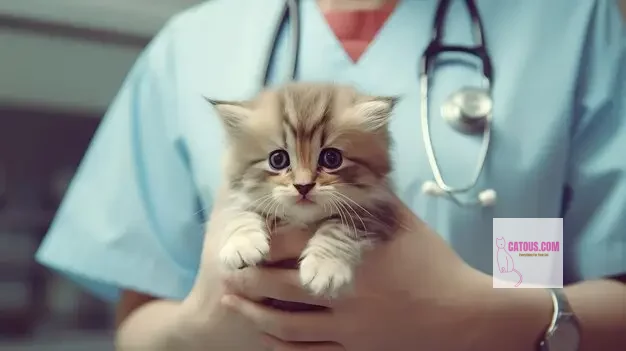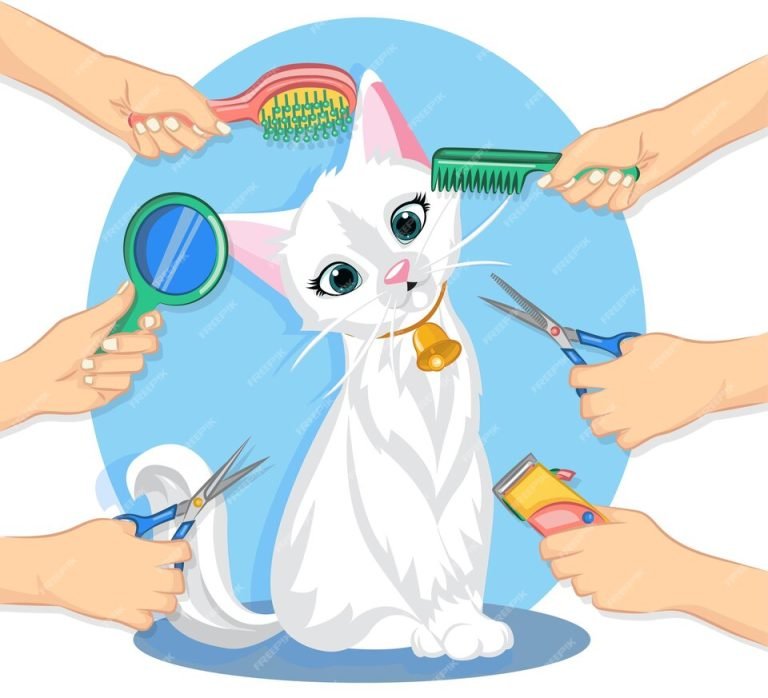Disclosure: This page may contain ads and affiliate links. We may earn a commission at no extra cost to you.
Views: 26
Disclosure: This page may contain ads and affiliate links. We may earn a commission at no extra cost to you.
Nourish Your Cat with Grain-Free Food
Discover the benefits of feeding your cat a grain-free diet and provide them with the nourishment they need to thrive.
As a loving cat owner, you want to ensure that your feline companion receives the best nutrition possible. One dietary option that has gained popularity in recent years is grain-free cat food. Grain-free diets eliminate common grains such as wheat, corn, and soy, focusing on high-quality protein sources and nutrient-rich ingredients. In this article, we will explore the benefits of nourishing your cat with grain-free cat food, providing you with valuable insights and information to make informed decisions about your cat’s diet.

Table of Contents
Benefits of Grain-Free Food
A grain-free diet can provide several benefits for your cat’s health and overall well-being:
Digestive Health
Cats are obligate carnivores, which means they have a limited ability to digest grains. Grain-free cat food eliminates potential sources of digestive discomfort and may reduce the risk of food intolerances or allergies.
High-Quality Protein
Grain-free diets typically prioritize high-quality protein sources, such as real meat or fish. These protein-rich foods support lean muscle development and provide essential amino acids for your cat’s overall health.
Weight Management
Grain-free cat food tends to be lower in carbohydrates, which can be beneficial for cats prone to weight gain. By reducing carbohydrate content and increasing protein and healthy fats, grain-free diets support healthy weight management.
Healthy Skin and Coat
The nutrient-dense ingredients found in grain-free cat food, such as omega-3 fatty acids, promote a healthy skin and a shiny, lustrous coat. These essential nutrients contribute to reducing shedding and minimizing skin irritations.
Essential Nutrients for Cats
When choosing grain-free cat food for your cat, it’s important to ensure that it still meets their nutritional needs. Here are some essential nutrients that should be present in their diet:
Animal-Based Protein
Cats require a diet rich in animal-based protein. Look for grain-free cat foods that list high-quality sources of protein, such as chicken, turkey, fish, or beef, as the primary ingredients.
Taurine
Taurine is an essential amino acid for cats. It plays a crucial role in maintaining heart health, vision, and reproductive function. Ensure that the grain-free cat food you choose includes sufficient taurine levels.
Essential Fatty Acids
Omega-3 and omega-6 fatty acids are vital for your cat’s skin, coat, and overall health. Look for grain-free options that contain sources of these fatty acids, such as fish oil or flaxseed.
Vitamins and Minerals
A well-balanced grain-free diet should provide essential vitamins and minerals, including vitamins A, E, D, and B-complex vitamins, as well as minerals like calcium, phosphorus, and zinc.
Choosing a High-Quality Grain-Free Cat Food
With numerous grain-free options available, it’s important to choose a high-quality food that meets your cat’s specific needs. Consider the following factors:
Read the Ingredient List
Take the time to read the ingredient list and ensure that high-quality animal protein sources are listed first. Avoid foods that contain artificial additives, fillers, or by-products.
Look for Complete and Balanced Formulas
Ensure that the grain-free cat food you choose is labeled as “complete and balanced” to meet your cat’s nutritional requirements. Look for the Association of American Feed Control Officials (AAFCO) statement on the packaging.
Consider Your Cat’s Age and Health
Cats have different nutritional needs depending on their age and health conditions. Choose a grain-free cat food formulated specifically for your cat’s life stage, whether it’s a kitten, adult, or senior cat.
Transitioning to a Grain-Free Diet
When introducing a new diet to your cat, it’s essential to transition gradually to avoid digestive upset. Follow these steps for a successful transition:
Slowly Introduce the New Food
Mix a small amount of the new grain-free cat food with your cat’s current food. Gradually increase the proportion of the new food over several days or weeks
until your cat is fully transitioned.
Observe Your Cat’s Response
Monitor your cat’s behavior, appetite, and stool during the transition period. If you notice any signs of digestive upset, such as diarrhea or vomiting, slow down the transition process or consult your veterinarian.
Be Patient
Every cat is unique, and some may take longer to adjust to a new diet than others. Be patient and allow your cat time to adapt to the new grain-free cat food.
Common Myths About Grain-Free Food
There are some common misconceptions about grain-free cat food for cats. Let’s address a few of them:
Myth: All Grains Are Bad for Cats
While cats have a limited ability to digest grains, not all grains are harmful. Some grains, such as rice or oats, can be well-tolerated by cats. However, a grain-free diet can be a suitable option for cats with grain sensitivities or allergies.
Myth: Grain-Free Diets Lack Essential Nutrients
A properly formulated grain-free diet can provide all the necessary nutrients for your cat’s health. High-quality grain-free foods are carefully balanced to meet your cat’s nutritional needs through alternative ingredients.
Myth: Grain-Free Food Is Only for Cats with Allergies
Grain-free food can benefit cats with allergies or sensitivities, but it is not exclusive to them. Many cat owners choose grain-free options as a preventive measure or to provide their cats with a diet closer to their natural carnivorous needs.
Questions and Answers
1. Can all cats benefit from a grain-free diet?
While grain-free diets can provide benefits for many cats, it’s important to consider your cat’s individual needs and consult with your veterinarian. Some cats may have specific dietary requirements or medical conditions that require a different approach.
2. How can I determine if my cat has a grain sensitivity or allergy?
If you suspect your cat has a grain sensitivity or allergy, look for symptoms such as gastrointestinal upset, skin irritations, excessive scratching, or changes in behavior or appetite. Consult with your veterinarian for an accurate diagnosis and guidance on appropriate dietary changes.
3. Are homemade grain-free cat diets a good option?
Homemade diets require careful formulation and consideration of all necessary nutrients. It’s important to work with a veterinary nutritionist to ensure your homemade grain-free cat diet meets your cat’s nutritional needs. Improperly balanced homemade diets can lead to deficiencies or imbalances.
Conclusion
Disclosure: This page may contain ads and affiliate links. We may earn a commission at no extra cost to you.
Nourishing your cat with grain free food can be a beneficial choice to support their overall health and well-being. By focusing on high-quality protein sources, essential nutrients, and carefully formulated recipes, grain-free diets provide cats with the nourishment they need to thrive. Remember to consider your cat’s individual needs, consult with your veterinarian, and choose a reputable brand that offers complete and balanced grain-free options. With the right diet, you can provide your cat with a wholesome and nutritious meal that supports their optimal health and happiness.
Disclosure: This page may contain ads and affiliate links. We may earn a commission at no extra cost to you.






